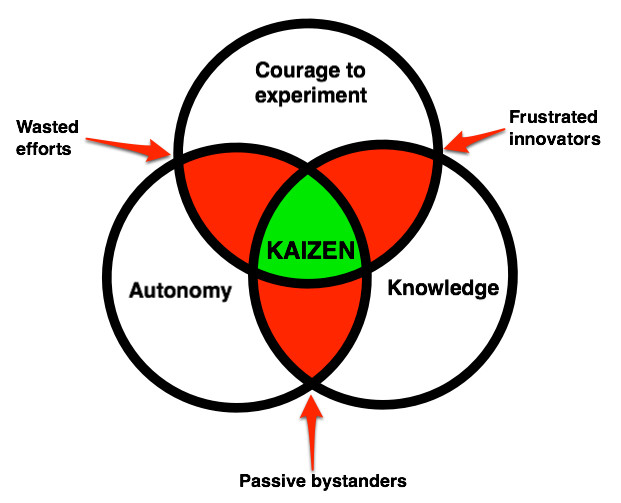I've noticed recently that even in the presence of obvious problems and easy improvements, people often don't engage in kaizen. They just muddle through their work, wishing it were easier, and resigning themselves to the fact that it's not. But why? I think that kaizen activities flourish at the intersection of Autonomy, Courage, and Knowledge.
- Autonomy: the ability for a person to act without seeking permission. Many organizations are so sclerotic as to require workers to get approval for any change they want to make. Example: Rich Sheridan, president of Menlo Innovations, allows (expects!) people to sit where they need to sit and form the teams they need in order to create the right products for customers. Or any organization that eschews suggestion boxes in favor of improvement boards on the walls.
- Courage to Experiment: the confidence that making mistakes is natural, expected, and -- as long as it doesn't cripple the company -- welcome. Example: Grey Advertising (NY) bestows a "Heroic Failure" award. SurePayroll actually gives a cash award for errors that lead to significant learning. WL Gore distinguishes between "above the waterline" and "below the waterline risks" -- only the latter need approval from the senior team.
- Knowledge: understanding one's work well enough to be able to improve the way things are done. Example: This is the easiest criteria to meet, because anyone who does a job with some modicum of self-awareness has the necessary knowledge to improve the work. In other words, *everyone* has the knowledge they need to make improvements.
Having just one or two of the elements won't create an environment conducive to kaizen. Without all three, you end up with passive bystanders, frustrated innovators, or wasted effort.

